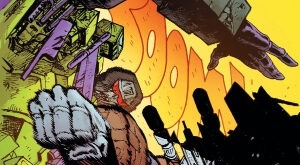 On January 28, the LEGO Group celebrates the 60thanniversary of the iconic LEGO brick that has built children’s imaginations to life since its introduction January 28, 1958. To celebrate its milestone, the company is surprising New Yorkers with a larger-than-life LEGO brick model installation in the city’s Flatiron District, the original home of the American Toy Industry, beginning today through Sunday, January 28 at the intersection of 5th Avenue, Broadway, and 23rd Street in Manhattan.
On January 28, the LEGO Group celebrates the 60thanniversary of the iconic LEGO brick that has built children’s imaginations to life since its introduction January 28, 1958. To celebrate its milestone, the company is surprising New Yorkers with a larger-than-life LEGO brick model installation in the city’s Flatiron District, the original home of the American Toy Industry, beginning today through Sunday, January 28 at the intersection of 5th Avenue, Broadway, and 23rd Street in Manhattan.
LEGO Master Builders at the company’s Americas HQ in Enfield, Connecticut constructed the 1,200-pound, 10-feet-tall version of what is lovingly known in the LEGO community as a “2×4” – the classic LEGO brick that is two studs across by four studs long – that has inspired millions across the globe to tap into their imaginations and express themselves through creative building. The enormous LEGO brick model, which took Master Builders a total of 350 hours to build, will also pose one simple question to passersby, highlighting the theme of the anniversary celebration: What Will You Build?
By visiting www.lego.com/whatwillyoubuild, fans can find information about a collection of creative building sets commemorating the 60th anniversary, simple building inspiration, and guidance for how to facilitate a building moment that can be shared with the world using the hashtag #WhatWillYouBuild.
“The LEGO brick changed the way that children build and play, and for 60 years has become a childhood play staple in homes around the world for generations, so we are thrilled to celebrate children’s creativity with a one-of-a-kind model designed to commemorate the occasion,” said Amanda Madore, Senior Manager, Brand Relations for LEGO Systems, Inc. “We hope that LEGO bricks continue to entice people to build their imaginations to life for many generations to come.”
Six decades of creative play
Sixty years ago, the simple idea of adding tubes inside a plastic building brick turned into one of the most exciting and influential toys in the world – the LEGO brick. Since then, LEGO play has been about the joy of building and giving every child the chance to shape their own world through inventive play.
The LEGO Group began producing a plastic brick in 1949, but it was not until nine years later, in 1958, that the LEGO brick we know today was born. It took several years of iterations to find the iconic design, which has not been changed significantly since. The unique design and the uncompromised focus on quality and safety during the past six decades ensures that two LEGO bricks produced 60 years apart can still fit together.
“LEGO play is powered by imagination and curiosity, and the LEGO brick is at the very heart of it – putting the bricks together and taking them apart over and over, with imagination as your only limit. This helps young minds to stay open, keep exploring and develop skills essential for the 21st century*, such as creativity, collaboration and problem solving,” said Julia Goldin, Chief Marketing Officer, the LEGO Group.
Building the world’s creativity for over 60 years
The LEGO brick has proven timeless due to its great quality, opportunity for constant reinvention and endless hours of fun. LEGO play appeals to all generations and remains as fun and relevant today as it was in 1958, inspiring generations of builders, creators and dreamers through the power of play. While the LEGO Group has constantly created new ways to play, its original mission has never changed: to build children’s future through play and imagination. Each year, our consumer service teams receive thousands of heart-warming letters from young LEGO creative geniuses, who are constantly reminding us of our mission. Here are just a few examples:
Eleven year-old Helen said, “It’s like you can just hop into a different world you can transform into a paradise with only your mind.” Lincoln, age 7, shared, “I love it because you can build and play and use your imagination.”
Goldin summarized the company’s hope, saying, “All children are imaginative and begin their journey through life with incredible potential, curiosity and creativity. Playful learning experiences are important in helping children maintain this creativity and curiosity throughout life. We want to fire up the imagination of young generations to come too, and continue to inspire children to dream of worlds we’ve not yet imagined.”
Notes: *The Future of Jobs Report (World Economic Forum) lists problem solving, critical thinking and creativity as the top 3 skills needed for the future workplace.
About the LEGO brick
- LEGO Group founder Ole Kirk Kristiansen launched the first bricks called Automatic Binding Bricks in 1949
- Original bricks were hollow underneath, so they had limited clutch power
- In 1953, the name was changed to LEGO “Mursten” (Danish for LEGO bricks)
- Early LEGO bricks were available in five colors: white, red, yellow, blue and green
LEGO Brick Fun Facts
- Six “2×4” LEGO bricks of the same color can be combined in more than 915 million ways
- A stack of about 40 billion LEGO bricks would reach the moon
- The molds used to produce LEGO elements are accurate to within 4my/0.004mm – less than the width of a single hair. This accuracy enables the clutch power that helps bricks stay together
- LEGO bricks are now available in more than 60 different colors
- There are more than 3,700 different types of LEGO elements now in production
 Premier Pop C Pop Culture News – Movies, Comics, Television, Books, Toys, Games, and More
Premier Pop C Pop Culture News – Movies, Comics, Television, Books, Toys, Games, and More 

